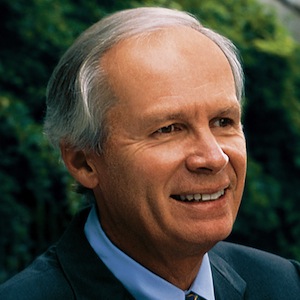John: Here in Boston, with Hiawatha Bray of the Boston Globe and
he stopped here at JFK School. Hiawatha, why don’t you talk to me
about the arc of your career?
Hiawatha: It was a strange stagger through all kinds of weird life
experiences — growing up on the Southside of Chicago, going to
college at Knox College, in Galesburg, Illinois, where I majored in
economics. Not knowing what I wanted to do and actually working for
years at the post office, just trying to find myself, which is a
pretty weird place to do it. But then I went back to school, went
to a christian college in Wheaton, Illinois, called Wheaton
College.
Got a degree in communication. By this time I think, “I
ought to become a journalist.” I got a job at the Wheaton, Illinois
Daily Journal and I actually won some Associated Press awards and
some other stuff like that. I was doing pretty well.
Then, I got hired by the Lexington, Kentucky Herald-Leader.
As I told you…. No, I didn’t tell you before. Lexington, Kentucky
is a really nice town which I’ve always really liked.
Then, for some strange reason, I gave it up to go to the
Detroit Free Press, where I spent about three years. Detroit, what
can I say? It’s actually a fascinating place to work. A rather
depressing place to live. Then, there was the newspaper strike and
I wasn’t going to cross the picket line. Luckily, I was able to get
a job at the Boston Globe. I’ve been there ever since. I’m going on
20 years at The Boston Globe.
I started writing about technology in Detroit, because of
the times. It was the moment when everything started to change.
John: What was it? About ’91, ’92? What was that year?
Hiawatha: What really happens is ’94.
John: ’94, all right.
Hiawatha: A couple of things happen in 1994. First, you have the
government deciding, basically, to privatize the Internet. They
say, “We’re going to allow private companies to take over the
operation of the nascent Internet backbone.” It starts to spread
and expand from, one of the key centers of it, the University of
Michigan.
You have the part of the backbone was run by the University
of Michigan. They started opening up to the public and people
started sampling it and experimenting with it using all of these
strange pieces of software with names like Gopher and Archie and
Jughead and all of that stuff.
But around the same time, of course, back in my native state
of Illinois and in Champaign-Urbana, you have a bunch of guys —
most famous of them of course being Marc Andreessen — who come up
with Mosaic.
That’s the moment everything goes absolutely nuts. Now,
you’ve already got people online at this time. Everybody sort of
forgets. I was already using a service called CompuServe. A lot of
other people were using America Online. Remember when you would get
all of those discs in the mail? It was crazy. We’ve almost
forgotten about them, because what they did was they ran private
computer networks that you reach by dialing in on a telephone line.
But they already had several million people each using them, so
this was already starting to catch on.
But then comes the public Internet and that just obviously,
if I can use the old cliché, it changes everything, of course.
CompuServe is long dead. AOL is a shadow of its former self, in a
completely different mode of operation.
But I was already online. I had actually been online since
really the 1980s, using the dial-up bulletin board services, which
were just absolutely fascinating things. You could get a feel for
the way things were heading when you started messing around with
those. But when the Internet comes along, and when Mosaic comes
along, and that really becomes exciting because Mosaic is a
technology that begins to make the Internet more accessible and
more attractive to ordinary people.
It looks ridiculous now. If you can remember what a web page
used to look like. Of course, we skipped that which was happening
off in Switzerland, when Tim Berners-Lee was inventing the World
Wide Web. If you remember what the early web pages looked like they
were just ridiculous. They were totally a joke. But this did allow
you to do things like post pictures and eventually you could start
putting up audio files, and little by little it starts becoming
more and more capable.
The minute I saw this, I said, “We have to start writing
about this. This is going to be exciting.” It turned out I was
right. The whole world is just absolutely going crazy here. You
have a lot of stuff that, for example, explains the subsequent, not
fall, but decline of Microsoft really begins at this moment.
Because this is where Microsoft is completely wrong-footed,
as the British like to say, by what happens here. I was at
Microsoft headquarters back in the ’90s, and Bill Gates was talking
to a bunch of us about this, that and the other thing. We were in a
conference room. I just looked around and noticed something that
struck me, even then. There were no Ethernet ports. This is well
before WiFi, even, but there were no Ethernet ports at any of the
seats in the conference room.
I realized, and then I thought, You know what? The whole
reason, for example, that a company like Novell for a time became a
huge company in computing was because they made networking software
that let you network Microsoft PCs, because they didn’t have
networking software built into the operating system for DOS or for
Windows. The whole Microsoft worldview at that time had no real
connection with the essential importance of networking computers
together. They simply had failed utterly to realize that. I feel
stupid because I didn’t fully realize. I should have been a
billionaire, because I should have seen this coming.
The first time I dialed onto a bulletin board, what went
through my head was…all of these people were talking about you
should buy a personal computer so you can use it as, you can do
typing on it or you can store your home recipes on it. The minute I
logged onto a bulletin board, a thought went into my head. This is
why people are going to buy computers. Sooner or later, people are
going to realize that you can use them to communicate with each
other all over the world, and this is why people are ultimately all
going to want computers.
I should have started a business, but I didn’t think of it.
But Microsoft apparently didn’t fully understand that,
either. It isn’t until, not really until Windows 95 or 98 where
they finally put software. It was 95, because they had earlier
versions of Windows like Windows 3.1 and all of that, and there was
nothing in there for enabling you to connect. Remember you had to
download that program called, what was it, Winsock?
John: Winsock, yes.
Hiawatha: It was called something Winsock. You had to spend hours
figuring out how to configure it and put it on your computer just
so you could dial on to an Internet connection and get an IP
connection. Because, of course, what Winsock was doing was adding
the IP protocol to, basically, Microsoft’s DOS-based operating
system. It just didn’t have that in there, and even well into the
’90s, Bill Gates and company failed to understand how important
this was.
Of course, when they did understand, they went on this
absolute crusade which included, “We’re going to crush Netscape.”
They were kind of right, but they were early. They got in huge
trouble with the government, but they were foreseeing what
eventually happened to the cloud. Now, of course Microsoft has
embraced the cloud, but back then the idea terrified them, with
good reason.
They were looking at the idea that someday…in fact,
remember there’s this great line that Mark Andreessen had? Where he
was saying, “Ultimately, we’re going to be able to do this stuff
online through a browser, instead of having to have everything on
your desktop.”
He said that, “By the time we’re finished, Microsoft
Windows is going to basically become a badly debugged set of device
drivers. That’s all it’s going to be good for.”
That was like waving a red flag in front of a bull. They
paid a terrible price for that but so did Microsoft, due to the
antitrust case. Microsoft hasn’t been the same since.
John: Really, for you personally, the Eureka moment was the net
and the connectivity.
Hiawatha: Connectivity and the ability to communicate the digital
information almost virtually instantly all over the world.
John: Now, one of the things that’s changed is your relationship
with your audience as a journalist.
Hiawatha: Oh yeah. Absolutely.
John: Now, when you started you used to get maybe a letter in the
mail maybe once every few weeks. Now, your audience is right there
all the time.
Hiawatha: Yeah.
John: How do you feel about that? Talk to me about that shift.
Hiawatha: I like it. Although, I’ve been vaguely disappointed. I
don’t get as much mail from readers as I would’ve assumed you would
get. I don’t get tons of email. By the way, other people you’ve
talked to, have they said they get tons of email from readers?
John: No, they haven’t said they get tons of email but they said,
whenever they get anything wrong, they’re quick to hear.
Hiawatha: Yes. Absolutely true. One of my colleagues at the Detroit
Free Press has this wonderful line, or one of my former colleagues,
Dan Gillmor. You know Dan Gillmor.
John: Yep. I know Dan.
Hiawatha: There you go. Dan Gillmor has this wonderful line that I
always try to remember. “Your readers know more than you do.” In
the world of the Internet, they will tell you and that’s fine.
I always try to remember that my readers know more than I
do and, when you get something wrong, yes, you hear about it. Bang.
Right away. It can be very embarrassing, but that’s life. I think
that’s all part of it.
It’s weird because there’s no question that what has
happened has had, in some respects, devastating impacts on
traditional journalism. I can’t bring myself to think it’s a bad
thing. I’m sorry. It’s a threat to my livelihood but is it overall
a good thing for society? I would say yeah. Yeah, pretty much for
the most part. Yeah.
John: You’ve been covering this for over…
Hiawatha: Yeah. Over 20 years now really.
John: …over 20 years. How has your relationship with the
technology companies you’ve covered changed? You’re covering a
sector that went where, back in the day, there were a handful of
people covering it to, now, there’s a hoard of people covering it.
Hiawatha: Right.
John: How has your relationship with your sources in the
companies you’ve covered changed? Has it changed? Are they
bypassing you at all?
Hiawatha: In some cases…yeah. Oh, in some cases yes absolutely.
Well, some of them the most blatant I think is Apple. That’s not
surprising. Apple just…their strategy is very obvious. They
basically talk to the biggest media companies in the country and
they ignore everybody else.
The Globe has seen its circulation decline dramatically. We
were easily, when I started, one of the top 20 papers in the
country. We’re not even in the top 20 anymore and that’s part of
the problem that I’ve had. In addition, we’re in Boston.
Boston is simply not a hotbed for the highest profile
technology companies. The biggest technology company in the state
of Massachusetts is a company most people have never even heard of
called EMC. It’s one of the most important technology companies in
the world. Most people have never heard of them. If you’ve got all
this junk sitting out there on the cloud, there’s a decent chance
that at least some of it is sitting on machine made by EMC.
Although, even there, that’s not nearly as true in some
cases as it once was, precisely because of the way cloud systems
work. Data storage is becoming so generic. A company like Google,
they don’t go buying stuff from people like EMC. They just build
their own servers. They buy a bunch of hard drives and assemble
them into servers. They don’t even need that anymore, which is why
EMC is doing reasonably well but the entire big-time storage market
is actually quite weak these days. It’s really interesting.
Meanwhile, of course, we’re famous here in Massachusetts.
Harvard is known as the school that let Mark Zuckerberg get away.
You said, why isn’t Facebook based out here? Of course,
they make logical sense out there.
The failure of this entire region to attract the kind of
consumer technology companies or companies that mass produce the
critical hardware that is vital to computing, with the exception of
EMC, but it of course is an enterprise company.
We don’t have the Intels of the world or the AMDs. We don’t
have the Googles. We don’t have the Hewlett-Packards or the Dells
or the Apples. The whole center of gravity, in terms of
manufacturing and the production of a lot of these new products, is
on the West Coast. The center of gravity of a lot of the innovation
is here. It’s kind of annoying.
John: Someone in Washington said, “Well, it helps me
keep my distance. Not being near the center of gravity of tech
helps me keep my reportorial distance from them.” How do you…
Hiawatha: I think that’s true. I think that’s true. I don’t have any
trouble keeping my distance because I tell you I mainly focus on
the technology and not on the personalities anyway. I get to try a
lot of this stuff and write about it and write about the trends
that I see going on out there and I talk to a lot of smart people.
I don’t have to get caught up in other people’s reality
distortion fields. I get caught up in my own. I’m the guy who
predicted that, when Steve Jobs comes back and he brings out the
iMac, I said, “This is going to flop. This is going to be a
complete failure.” Beep. Wrong. Did fine. Did just fine.
Yeah, I don’t claim to have this great crystal ball, but I
don’t worry about it. What I try to do is look at what’s out there
and consider its value to readers and its implications for how we
do stuff.
There are just countless things going on out there that are
just completely changing everything that we’re dealing with for
better and, in some cases for worse, but I think mostly for better.
I don’t have to be sitting on the laps of the companies that make
them in order to write about that.
John: Has the relationship changed? Do you feel a different
relationship among the tech reporters now than then, or is it the
same combination of competition and camaraderie that has always…
Hiawatha: I don’t think that’s changed.
John: You don’t think that’s changed?
Hiawatha: I don’t think that’s changed.
Bray: Competition plus camaraderie is pretty much it. We talk to
each other when we encounter each other. We’re not at each other’s
throats that I’ve noticed. There’s plenty of stuff going on out
there.
In addition, so much of this stuff comes out from these
companies themselves, going straight to the public and sharing it
on blogs and on Facebook pages and on blogs and stuff like that.
There aren’t a lot of secrets. You’re better off trying to write
about the new and impending stuff that’s in the pipeline, rather
than new product stuff.
Besides that, things like looking for new product leaks is
never particularly interesting. I’ve never understood all this
stuff about, “Here’s the latest leak on what Apple’s new phone’s
going to look like.” I don’t care. When it comes out, we’ll know.
When it happens, it happens. Unless there’s something that’s going
to emerge that’s just going to be completely transformative.
I’ve got a story coming out about something in cable
television that’s been talked about for a while. We may finally be
starting to see it. They call it the virtual-MSO. But it’s one of
those fascinating things that you wonder why we hadn’t seen it up
to now. For example, we’re in the Boston area. Verizon has FIOS,
but they’ve never run their cables in the Boston area, so we can’t
use Verizon for cable TV. You have to use mainly Comcast, or get a
dish or something like that. But Verizon’s planning to launch a
virtual cable service.
What it does is, they get access to the standard cable
channels and they pump them over the Internet. You buy a broadband
connection from whoever you want, like Comcast. But instead of
getting your TV from Comcast, you subscribe to the Verizon TV
service. It comes in over your broadband. If that kind of thing
takes off…Let’s see, Verizon’s going to do one, Sony has said
they’re going to do one and Dish Network has said they’re going to
do one.
Now, if that happens, it transforms the cable TV industry
in some rather significant ways. Now, they don’t have to run a
cable through a neighborhood to deliver cable TV service in that
neighborhood. They bring it in over somebody else’s broadband.
Comcast may not like it, but they can’t do anything about it.
But if they attempted to stop it…We don’t have net
neutrality laws, but any attempt to stop it and you would see a net
neutrality law get passed pretty darn quick. It’s your broadband
connection. If you want to use it to bring in Verizon cable TV, if
anything, Comcast might…
In fact, there are good reasons to think that Comcast
wouldn’t object. Because if you do this, you’re going to have to
buy more broadband. You’re going to have to use more broadband and
you’re probably going to have to get a bigger pipe to do both all
your other stuff plus the TV.
Meanwhile, the number of people getting cable TV has
leveled off. It’s not growing anymore. It’s actually ever-so-
slightly declining. Broadband demand is soaring. In the long run,
they might be better off letting it happen. But that’s just one of
the examples of something that’s coming up that I think is much
more interesting than writing about what the new phone is going to
be.
I don’t know. We’re going to see this happen. When Verizon
offers this service — and they say they’re going to start offering
it, at least in some test markets, in 2015 — will it make sense
for me, at home, to say, “All right, Comcast, turn off my cable TV.
I don’t want TV from you anymore. Just give me a bigger Internet
pipe. Give me a bigger Internet pipe, take away my TV and I’m going
to buy my TV from Verizon.”
Or maybe I’ll buy it from Sony. Or maybe I’ll buy it from
Dish Network. In fact, I could buy it from all three, because it
would be virtual. I could say, “These guys have this channel, these
guys have this, these guys have this.” I wouldn’t want to, though.
That’s the big advantage the cable company has. Everybody’s talking
about, “You can go over the top and buy different channels.” Who
wants to go through all that?
Every time you want to switch to a different provider, you
have to re-log on to a different network. With cable, you just turn
it on. Here’s all the stuff you want to look at. Somebody’s going
to have to aggregate that. This is the kind of thing I like to
write about that I just think is absolutely fascinating stuff. The
other things that I think are going to come out…We’re still just
getting to the beginning of what a lot of people call the sensor
revolution.
The fact that now you can put sensors of just about every
description into just about everything, and use it to track and
monitor and record just about everything that’s happening in the
world around you. How is that going to change the world? Well, for
better, again, and for worse. We’re able to collect data about
everything. But who gets to keep that data and what in the world do
they do with it?
This is the kind of stuff that we now are coming to grips
with. That is, to me, much more interesting than writing about the
latest gadgets.
John: Latest gadgets, right. Would you agree that some people
have said, “The scoop culture has gone from many outlets, in tech
journalism, especially…”
Hiawatha: I hope so. I don’t really see the point. There aren’t that
many scoops in the sense of some breakthrough news story that
matters that much. It’s just, “Oh, I got this before you did.”
Yeah, but so what? It’s not that big a deal. It was going to come
out anyway. It’s not exactly earth-shattering. OK. Like the person
who gets the first photo of the next iPhone. You go, “Oh,
congratulations.”
I just don’t care that much. I think it’s more important to
write interesting and fulfilling and meaningful stories than to
constantly worry about beating somebody to something. Although I
haven’t seen any big stories about this. Oh, this isn’t going to be
out in the public anytime soon, is it?
John: No.
Hiawatha: Good. Because I’ve got to start working on this for next
week. It’s just a fascinating story that I’m dying to get my hands
on. Did you know that virtually every smartphone on earth has a FM
radio in it?
John: I thought I did. I didn’t not know.
Hiawatha: I mean, an FM radio in it. Now. Today, so that you could
plug in a set of headphones and listen to FM radio on your phone.
John: No, I did not.
Hiawatha: Yeah, I didn’t either. I knew my own phone has it. I have
an HTC One Android phone. It has it. But virtually all of them have
it, including the iPhone. But carriers don’t want you to use it.
Because if you listen to radio, you’re not streaming data and
making money for them. They don’t let it work. In the rest of the
world, millions of people listen to FM radio on their smartphones,
but not here in the US.
Now, the National Association of Broadcasters is trying to
launch this big push to pressure the phone companies into letting
you use the radio that’s built into your phone. I think this is a
fun story.
John: That is a fun story.
Hiawatha: A few years ago, they actually were lobbying for a law that
would make it mandatory to put FM radio chips in phones. This is
back when we were using the old flip phones, and they didn’t have
that. It was the dumbest thing I’d ever heard. You’re going to
force people to put FM radios into their phones? “But it’s good for
the public!”
Get out of here, that’s garbage. But then it turned out,
because there was so much demand in the rest of the world, they
started building FM radio capability right onto the chips that are
built into the phones. Now, certainly most smartphones have an FM
radio in it. Then, the carriers turned around and said, “We don’t
want our customers listening to the radio, turn that off!”
It’s fascinating to me. Stuff like that that I just think
is so fascinating.
John: How do you think journalism, writ large, as a whole, has
done, covering the last 20 or 30 years?
Hiawatha: Not too badly. Except we do get caught up in a lot of
fanboy-ism and we root for some of this stuff a little too much.
John: Would you say…Sometimes, it seems that…Others have said
it’s become a combination of celebrity journalism and political
journalism. The flaws in some of those come up in tech.
Hiawatha: Yeah, I guess. I don’t know. You hear people say that, but
I don’t think I’ve seen anything that’s too terrible. You see more
and more skepticism aimed at companies like Apple. I will grant you
that there’s this whole big Apple cheering section that you
sometimes get it from. But nowadays I think you see a fair amount
of skepticism about Apple, as you do about Microsoft, as you do
about a lot of companies.
I don’t think you get that same quite worshipful attitude
that people sometimes bring to bear. There are so many different
kinds of technology around journalism too. I find myself dabbling
in all of them. I do product reviews. I try to take the long view
of the state of the various industries, although I don’t get to do
that as much as I would like.
I’m trying to do a story about what’s going on in storage
and my editors just aren’t as excited about that. Even though it’s
one of the most absolutely fundamental things happening in the
world. I would love to write about that.
We need to write more about bandwidth, about the efforts to
make sure that there’s going to be enough bandwidth in the world.
You can write about stuff like this if you’ve got a sexy, juicy
angle. Like I just got through writing about the company in Waltham
that’s trying to…
Actually they’re in a head-to-head competition against
Google and Facebook, of all things. They are building a drone that
is designed to stay in orbit, in the air, at 60,000 feet for up to
two years at a time and just act as a radio transmitter, beaming
broadband cellular data from the air. Of course, Google and
Facebook are both working on the same thing.
These guys are working on a shoestring. They’re a bunch of
aeronautical engineers and they’re saying, “This is something where
having the extra money does not necessarily give you an advantage.”
They are, by the way, in talks with Google. Google may buy them.
They think that, by some time next year, they’ll have one of their
prototypes up there, 60,000 feet. The longest they kept a plane up
is 37 hours.
But that’s the kind of thing I think is…It’s sexy. Solar-
powered airplanes with 150 foot wingspan just hovering over…
John: Geostationary.
Hiawatha: Yeah, it’s not in space, of course. But it’s basically
geostationary. Not completely stationary, because it flies in a big
circle at about 50 miles an hour. It has to be about 60,000 feet,
because it has to be that high to avoid getting torn apart by the
wind. This is an incredibly fragile aircraft. But at that altitude
there’s almost no wind. You just sit there and just fly. It’s
supposed to last for two years.
If they can make it work, and there’s no theoretical reason
why they couldn’t, then this is what you use in developing
countries all over the world to provide communications.
John: Has it surprised you, covering all of this innovation, that
the news business hasn’t innovated more?
Hiawatha: I don’t know how you do. The problem isn’t that there was
nobody thinking about this. Does anybody remember Pathfinder, was
it? That Time…They were trying to figure this out from the
beginning. Claims that they were sitting on their hands, not trying
to figure out how to deal with the Internet, are nonsense. The
problem is they haven’t found any good answers.
Because you have to figure out a revenue model. That’s the
real issue. Getting people to read news online, that’s the least of
your problems. The problem is how do you make money doing it.
They’ve tried a variety of business models. The online advertising
simply doesn’t begin to bring in the kind of money that print
advertising brought in.
People say, “They should have figured out some solution!”
There is no solution. There is simply no solution to that problem.
There is nothing that we are doing online that will bring in that
kind of money anymore. I used to work in a building where there was
a whole, huge central section full of people taking classified ads.
You almost have explain classified ads to people. Those tiny little
ads used to bring in roughly a third of the revenue and that entire
one third of the revenue is gone. It will never come back.
There was nothing we could have done to prevent that. The
minute you saw…First it was eBay. That was the one that got my
attention. But probably the real killer was Craigslist. You see
those two things. Frankly, the moment I saw eBay, years ago, I
said, “We are so screwed.” The problem isn’t our circulation. The
problem is advertising. This is where a lot of people who used to
place classified ads are going to start selling their stuff.
Of course, that was nothing compared to what happens when
Craigslist comes along. That’s it. There is no longer a reason for
classified ads to exist. It’s like the buggy whip problem. You
can’t find a way of making gold plated buggy whips. There’s no way
people are going to keep buying buggy whips. You simply don’t need
buggy whips. Period. That’s that.
John: So the web, Craigslist. Other eureka moments? Other things
that suddenly struck you as, “This is going to be an existential
threat to the news business, to journalism.”
Hiawatha: No, I think that was it. People are whooping and hollering
about blogging, but I loved blogging the moment I saw it. I never
thought that was any threat to journalism. I thought blogging was
great. I thought a lot of bloggers were talking nonsense, but
that’s not the point. Heck, most of what you see on blogs of any
value is stuff they got from newspapers or other legitimate news
sources.
There were actually people talking about blogging replacing
traditional journalism. It was laughable. Traditional journalism
takes time and effort and a certain amount of knowledge. Any of
these bloggers could learn to be a journalist, that’s true. But it
still requires a support structure that blogging just doesn’t
provide, unless you’re one of those rare bloggers who can make so
much money blogging that you can hire a staff or something. No,
that wasn’t going to happen.
But what really has been the problem is the destruction of
our advertising revenue base. That’s the issue. I just don’t know
of anything that is going to ever replace that kind of revenue.
It’s really interesting. I was just reading something in
a…I can’t remember where. It was some conservative website and it
was making a really good…No, it wasn’t. It wasn’t a conservative
website. It was something called Inside Higher Education or
something. I can’t remember what it was.
Hiawatha: No, I don’t think it was that. It was philanthropy. It was
a philanthropy publication. They were making a fascinating point.
Right now, an increasing amount of journalism is being subsidized
by non-profit foundations, some of which have an ideological
agenda. Readers often may not know that. They were complaining
about some left-wing organization that was co-sponsoring an
investigative news report.
But the same thing could arise — I don’t know if it’s
happening, but you could easily imagine a right-wing foundation
subsidizing…Because there are these foundations now. In fact, I
saw one come over my desk in my own case that really raised
eyebrows. I didn’t hear anybody talking about this. SABEW, the
Society of American Business Editors and Writers. They are doing
the seminars teaching reporters how to report on the Affordable
Care Act.
It is funded by an organization called The Commonwealth
Fund that is an active supporter of the Affordable Care Act. I’m
reading this. I’m going, “It’s nice that they want to support
journalism, but do you really want to get to the point where
foundations with a clear, political agenda are the ones paying the
bills to cover particular stories?” Given the current financial
weakness, much of it Internet-induced, that our industry faces, you
might see more and more of that.
Is that a good thing? I think the answer is no. It makes me
very nervous. This is one of the things that has happened as our
revenue model has been ravaged. Don’t misunderstand me. This whole
concept of “objective” journalism is just a tradition. There is
nothing in principle wrong with newspapers having a slant, as long
as you know what it is. But you want to be careful when people are
presenting as objective journalism stuff that may have been
subsidized by people with a dog in the fight.
I remember seeing that, last year or the year before, and
going, “Why is nobody in business journalism saying, ‘Hey, wait a
minute.'” If I was told or suggested, “Hey, we want you to cover
this and all your expenses will be paid by Microsoft,” I’d be like,
“No.”
John: There was a story this morning online about Verizon
starting up a tech blog to cover tech, but they’re saying to their
hires, “You can’t cover anything about security on it.” This is
Verizon.
Hiawatha: Yeah, if it’s their blog, I don’t have a problem with that.
You know they’re an interested party. I don’t have a problem with
it. It seems kind of dumb. Much better example! The one which you
surely remember and that is making everybody’s hair stand on end.
Oh my God, I’ve forgotten all the details. The one, a couple of
years ago, at CNet, where CNet gave an award, at the Consumer
Electronics Show, to a company…
For some reason, I can’t remember the name of the company.
They said they had the best thing at the whole show. They were
currently embroiled in a legal dispute with CBS, which is the owner
of CNet. The CNet editors were ordered not to give an award to that
company. Several CNetters quit, but it permanently tarnished CNet’s
image for trustworthy and objective coverage.
They were ordered not to give the opinion that they
genuinely held.
John: We’re back. We had to switch
venues because of a fire drill. So be it. One thing that’s
interesting to me, when you and I started this business it was sure
there were stars in journalism, but the institution always was
bigger. Now are we getting to a point where you writing a column,
are you more aware of your brand, that you have to manage yourself?
Hiawatha: In my case, absolutely, and it’s been sort of weird. It’s
come home to me for a couple of reasons. One, I have done a fair
amount of local television so I’ve done that. Two, I’ve done a
little NPR. Three, I’ve written a book called “You Are Here” about
the history of modern navigation.
It turns out that one of the reasons that Basic Books was
willing to publish a book by me was because I already had a sort of
a brand. That’s exactly right. If I were just some guy – Joe Schmo
– I don’t think I’d have gotten this book published, and it’s been
a big help to me. I try to treat myself as a brand and, to some
extent, market myself as a brand. It’s a good thing, and it helps.
However, I don’t want to be a star and that makes me very
nervous. I do occasionally get recognized when I’m walking down the
street and it creeps me out because I don’t think journalists
should be the story. It does help you to market yourself and make
yourself marketable and help you make a living. I like that part of
it but I don’t particularly have any desire to be famous so it’s a
little nervous.
Believe me, in any meaningful sense I am not, and it’s
great. I can just walk down the street and most people will go,
“Oh, look.” I’m walking through a store and it’s like, “Oh, it’s a
shoplifter.”
That’s fine with me. It really is.
John: Are you optimistic about journalism going forward? We both
know the news business, which we’ve discussed, is under incredible
strain, and it will continue. We don’t know. How about journalism,
though?
Hiawatha: I just can’t be pessimistic about journalism because the
demand for journalism is as great as it’s ever been. The problem is
paying for it. That’s the problem. I don’t know what the model is
going to be, but eventually we’re going to come up with something.
How it’s going to look, I don’t know.
I can’t tell you what it’s going to look like because nobody
else has been able to figure it out either, but you’re going to
have large, national media organizations that are going to do fine.
I keep hoping that there’s going to be a way to do highly localized
journalism that will also be reasonably profitable, but it’s not
going to have the kind of depth and sophistication that we were
used to because without the original, traditional revenue stream
newspapers just cannot be as deep and complex as they used to be.
It’s a shame. I used to be able to say, “Hey, I want to go
cover something in California,” and they’d send me to California.
Nobody’s got the money to do that anymore. Unless it’s a crucial
kind of thing, they just can’t do that. Heck, I got sent to Africa
one time and wrote about the Internet in Africa.
I asked, “Can I go back? There’s this big conference in Cape
Town.” They looked at me like, “Are you nuts? Get out of here.” I
would love to do it. That’s one reason I want to write books,
because it gives me an opportunity to do stuff that isn’t going to
be supported by daily newspaper journalism anymore.
If I do this book that I’m now trying to do about the rise
of video gaming as a competitive sport I’m going to have to…I’m
hoping I can get to South Korea, which is like the official
headquarters of it. You’ve heard about this thing, right, the
international? The international they gave out $5 million in prizes
to these guys – they were either Chinese or Koreans – playing this
game. That’s what’s starting to happen, and somebody needs to write
a book about that.
Actually, somebody has, but it was six years ago. Since
then, it’s just grown tremendously. I want to write a book about it
with a skeptical eye because I still can’t help thinking this is
poker. I think this is poker. After a few years it’s just going to
go woo, woo, woo, woo.
John: These are the hands we’re dealt.
Hiawatha: Absolutely. It gives me an opportunity to play around with
sports in general like the news…I don’t know if you saw it. It
was in the New York Times. It was a fascinating story about how few
people have been watching the World Series. They said more people
watch “The Walking Dead.” More people were watching “The Walking
Dead” than were watching game one of the World Series.
John: No team from Boston is in this year.
Hiawatha: That’s part of it. That’s right. Boston is one of those
teams where even though it’s a relatively small market people all
over the country would look because the Boston Red Sox, a story
legacy. The Kansas City Royals just doesn’t have that impact on
people. Not even the San Francisco Giants.
If the Chicago Cubs ever make it, that’s it. Even I would
watch baseball if the Chicago Cubs made it. The Yankees, the Red
Sox, maybe the Dodgers. I don’t know. Something like that.
John: It depends on the brand. That’s it.
Hiawatha: It depends on the brand. The NFL is rolling. They’re just
ecstatic because of the resurgence of the Dallas Cowboys. Whenever
the Dallas Cowboys are playing well and the Green Bay Packers are
playing well – and they both are – and the New England Patriots are
playing well people turn on their TVs to watch football when those
guys are playing.
What’s going to happen with video gaming as a competitive
sport? There is a surprisingly large audience for it, but after a
certain number are you going to sit for hours in a stretch watching
somebody else playing a video game? I just can’t talk myself into
believing that that’s going to remain a durable, long-term sports
franchise, but the very fact that they’re trying to turn it into
one is worth writing about.
That could be a really fun book, and I’m going to be
pitching that to my agent and saying, “Please give me another
book.” As for what’s going on covering my beat, there are times
when I feel like the innovation just isn’t coming as fast as it
used to be. This is a really important problem right now. It’s not
a problem. In the long run you know people are going to make these
amazing breakthroughs.
Right now, writing about smartphones. I can barely stir
myself to pick one of them up because they’re all the same. This is
not an evil thing. The point is that every technology starts to hit
this plateau where it achieves its general form and function, and
it is not going to change tremendously beyond that. We are at that
point now with the phone.
We’ve been at that point for the last decade in the PC.
There is nothing new happening of any significance in terms of
personal computing. Hasn’t been for years. It’s the same thing over
and over and over. Phones, that’s happened now. Tablets, that’s
happened now. What the next great…they’re trying to do wearables
but nobody is buying into that because they don’t do anything that
you really need.
Don’t get me wrong, I’ve said it in my columns, you come up
with one that’s under $100 and just does a few simple things like
buzz you when you get an email or buzz you when you’ve got an
appointment, yeah, I might buy that,.
These multi-hundred dollar things that are trying to do
everything in their phone and you talk to them? No. That’s just
silly. I don’t need that. A little personal notifier thing…and,
of course, I wrote about Pavlok. I don’t know if you saw that.
John: I did.
Hiawatha: I’m sorry, I need me one of those now. That is cool because
I’m the kind of person who forgets stuff. I’ve got to tell you,
when that goes on the market I may very well buy myself one. That
is the kind of thing that just made you go, “Oh, yeah.”
John: It’s good to see you can still get excited about that.
Hiawatha: I get excited whenever there’s some new, innovative thing
coming along. One of the things I’ve got to write about is stuff
for seniors because I just got a tablet. The first tablet
officially marketed by AARP. Whoops, I was going to hit the table.
AARP is going into the tablet business, and that’s very important
because they’re right. Tablets have a great potential to be a very
useful tool for seniors, and AARP is now marketing one.
I don’t want to write about the tablet because it’s
basically just a tablet. I want to write about what do you need to
do to a tablet to make it more accessible to older users. In fact,
I should take it to church and let some of the people at my church
play around with it for a while. The whole thing about
accessibility, which I like to write about on a fairly regular
basis because technology is a great way of building devices that
older people can use, that people with disabilities can use, the
blind can use, and so forth and so on.
John: People who used to read newspapers.
Hiawatha: Yes, people who used to read newspapers. Look, I prefer to
read things online anyway. I’m sorry. The reason is all my life
I’ve had lousy eyesight. I just find it easier to put something on
a video screen and blow up the type. I like reading things on
electronic screens. Some people say, “I could never.”
I read books on my phone. I have a Kindle app on my phone. I
read whole books on my phone, and some people say they can’t stand
it. I love it because I can make it any size I want, change the
background color so it’s easy on the eyes. Why wouldn’t you want to
do that?
I was in Congo last year. I read a whole book just sitting
around on the phone. It’s great. I love it. Are we…?
John: We’re about set.
Hiawatha: What else do you need?
John: That’s it.










